May 8th 2023, Salinas.
Travelling between Los Angeles and San Francisco, it’s impossible — for me at any rate — to escape the literary history of the area. Salinas, Monterey and the fertile flatlands between the mountains all provide the settings for three of John Steinbeck’s best novels, Cannery Row, Of Mice and Men and, of course, East of Eden. And how those flatlands were, and still are, farmed is the backdrop for one of Woodie Guthrie’s best known songs, Plane Wreck at Los Gatos, better known as Deportee.
Highway 101 runs right the way through the Salinas Valley, every square inch of which is farmed now on an industrial scale. There are few gaps between the fields, just a vast expanse of flatness filled with the rich fertile sandy soil in which market garden plants thrive. There were acres of cabbage, broccoli and lettuce, globe artichoke, onions and garlic, and vines — lots of vines. And at the sides of the road, and by the entrances to the fields, there are often stacks of transportable piping — means by which irrigation systems may be installed as needed during the growing seasons. It’s the same further south, as I saw when riding Highway 1, the narrower road a welcome break from the race track that is 101.
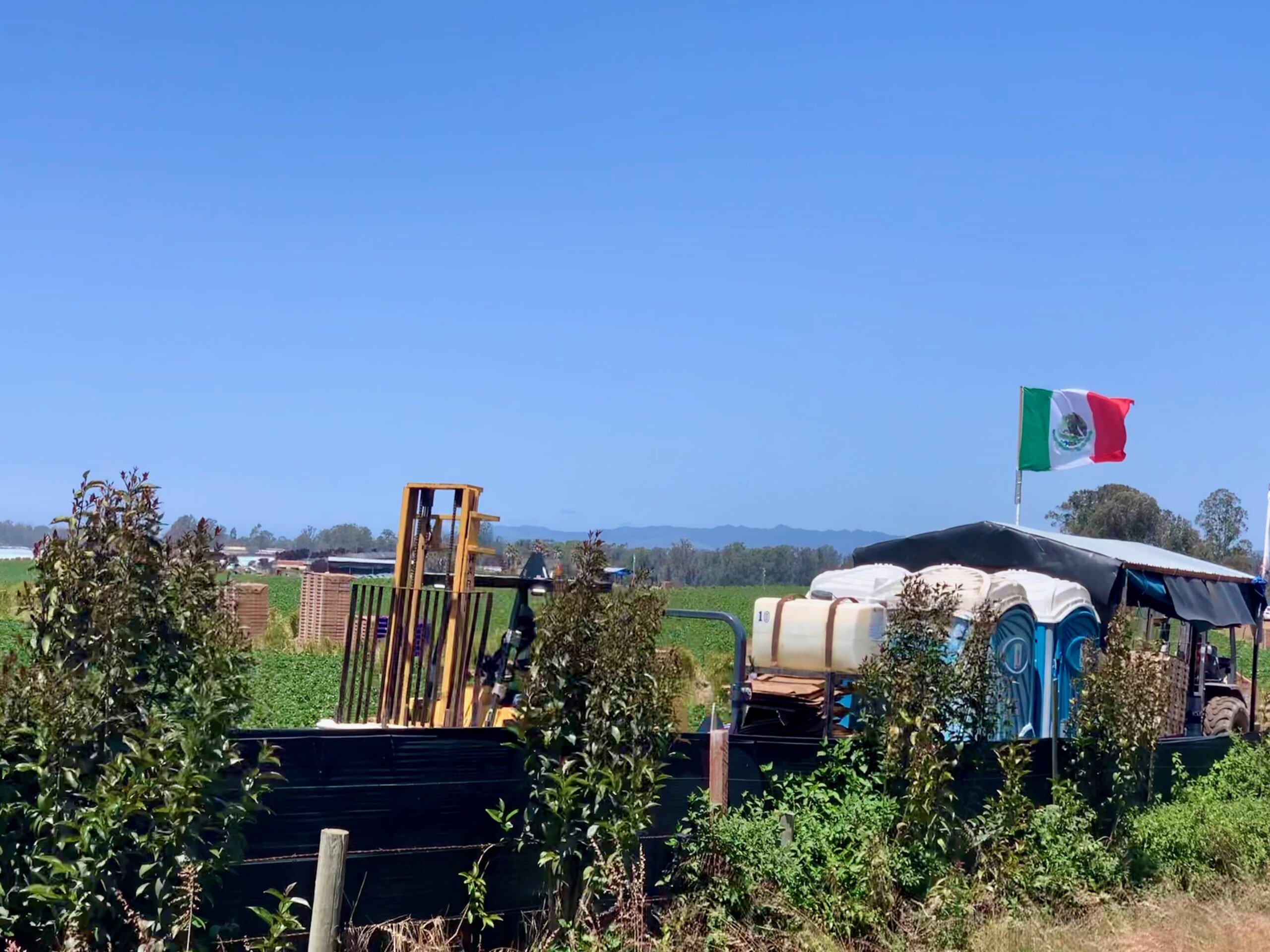
At harvest time, if machines can’t do the job, the fields are filled with scores of people, bent over and working in lines across the drills, picking as they go. Just past Guadalupe, they were doing that in huge strawberry fields. The road rose and at the crest of the hill, I had a good view to my left, where the picking was happening. Actually, what caught my eye first was a flag flying from the top of an open-sided shed between the field and the road. It was not the ubiquitous stars and stripes but the flag of Mexico. I stopped to take a picture and could see some women apparently co-ordinating the gathering of the fruit. They all wore ski scarfs pulled up over their faces to protect them from the intense sun, as they logged the number of boxes ferried over to them by forklift trucks. The boxes were then stacked, awaiting, I assume, loading onto lorries and away off to market or direct to shops.
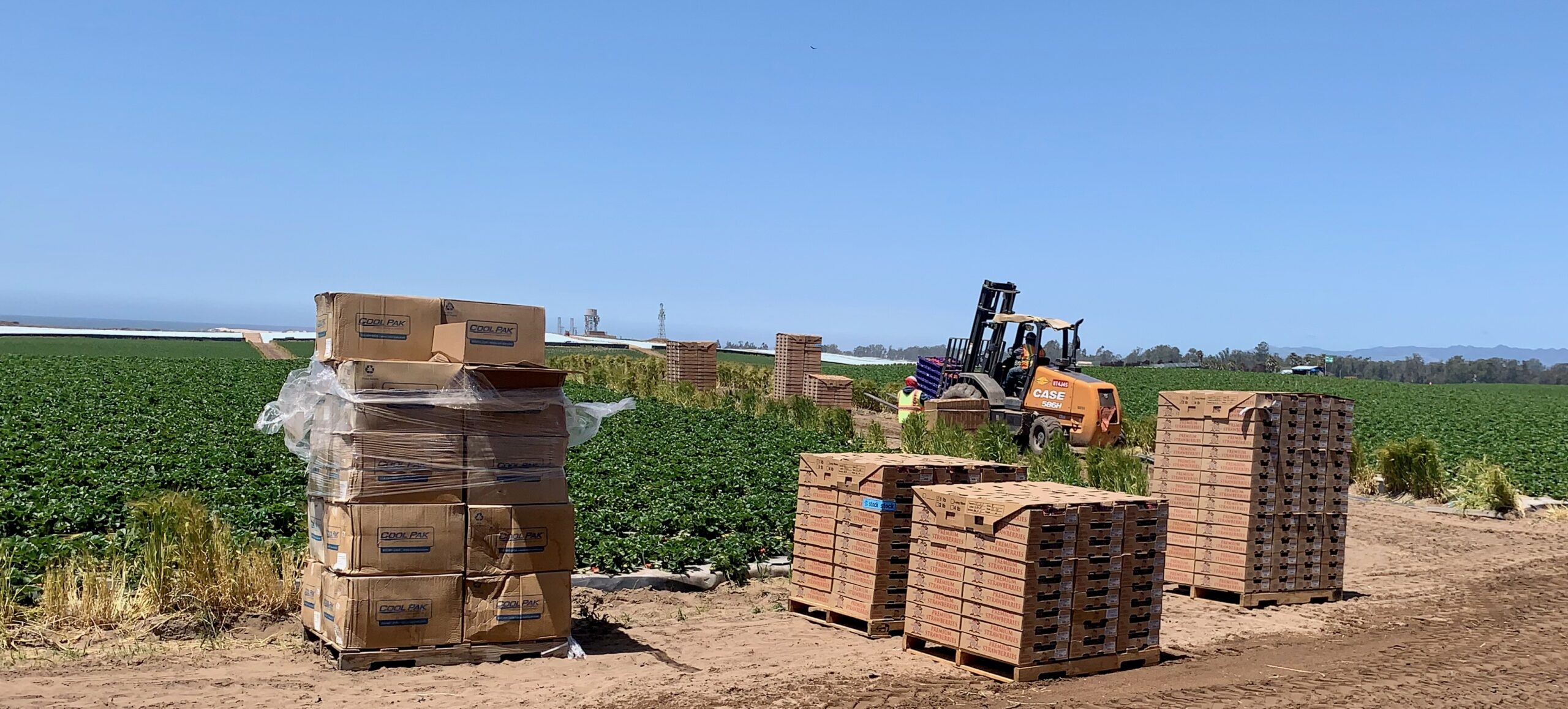
The field where the pickers worked seemed to stretch on for ever, falling away from the road. I leaned over the fence to watch and got chatting to one of the women. How many worked there, I asked. Three hundred, she said. All Mexican? All Mexican, she said, like her. She said they worked for Eat Sweet, which I later learned was the name of a farm a little further south that presumably owned, or leased, this land too. The ultimate owner was a company named Central West Produce, trading with the slogan Berries by the Sea. The berries in question are strawberriers, blueberries, raspberries and blackberries and the company is clearly a very major player with farms in California, Florida, North Carolina and Mexico. As I watched and chatted, some of the other women took off into the field and picket strawberries when they then presented to me, smiling and laughing. The pickers (they were too far off for me to see whether they were mainly men or woman or an even mix of both) appeared to come to work in cars, as numerous vehicles were parked by the entrance to the farm and at the field’s edge. So they were sufficiently well off to afford transport, I thought. Around about the area generally, there were clusters of caravans and RVs which I took to be the temporary homes of these workers, whether migrant or resident in the US I know not.
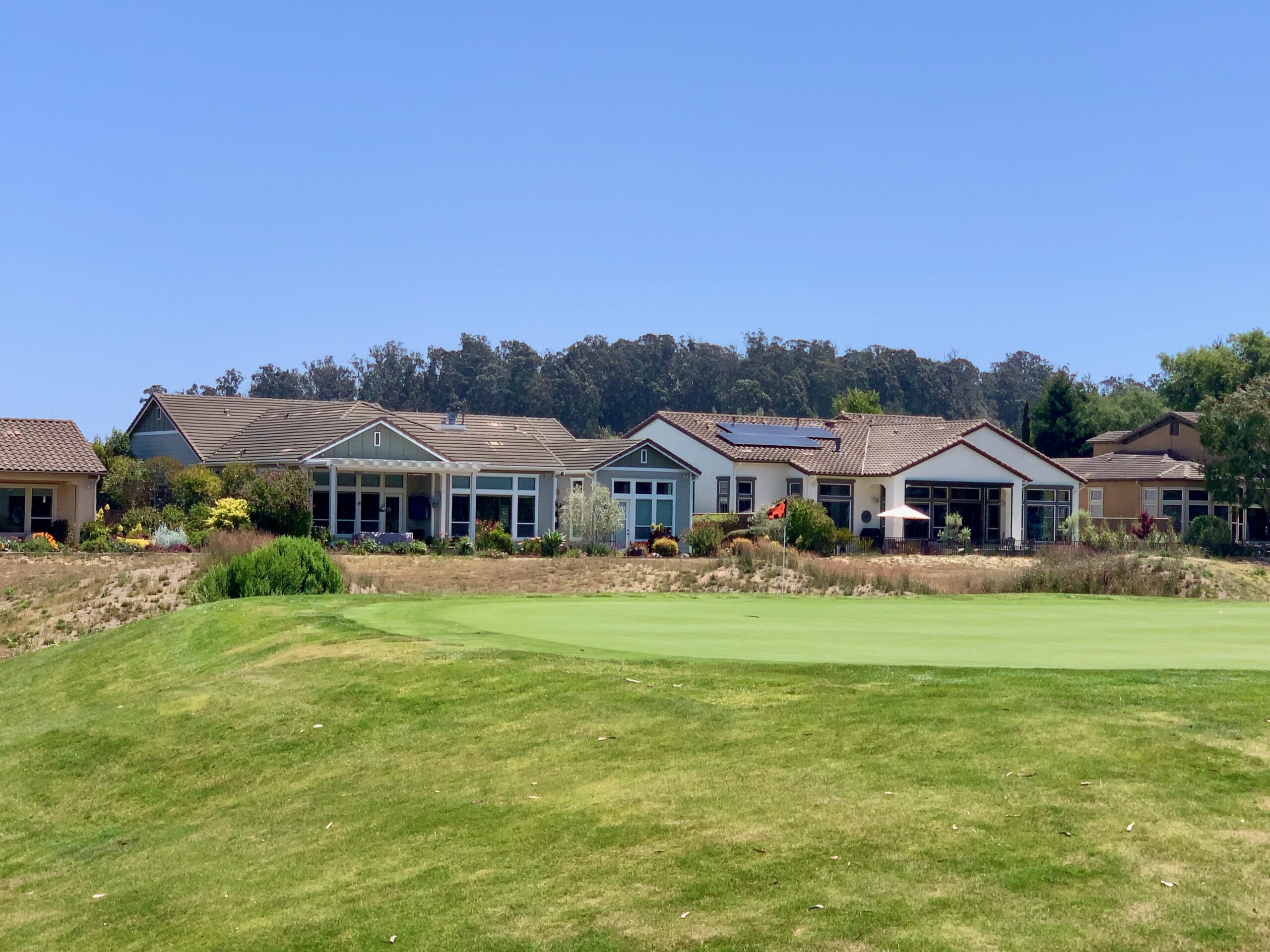
As I left, I could see through a line of trees on the other side of the road a golf course, the fairway of which was lined with houses. I decided to have a look and, inside was a huge and growing estate named Trilogy, much of it built around the golf course which was named Monarch Dunes. There was nothing symmetrical about the layout of the estate. The roads wound this way and that, and features of the landscape, such as clusters of trees or small hills, had been kept, enhancing a sense of intimacy, despite their being hundreds of homes. Fields of vines mingled with open spaces of the estate, as though sharing parkland helping to disguise the fact that there were, in fact hundreds of homes packed fairly close to each other. The homes themselves were typically suburban American — beautiful bungalows, each one just a little different from its neighbours, and all set amid perfectly maintained laws, roadside edgings, shrubs and trees, and water features.
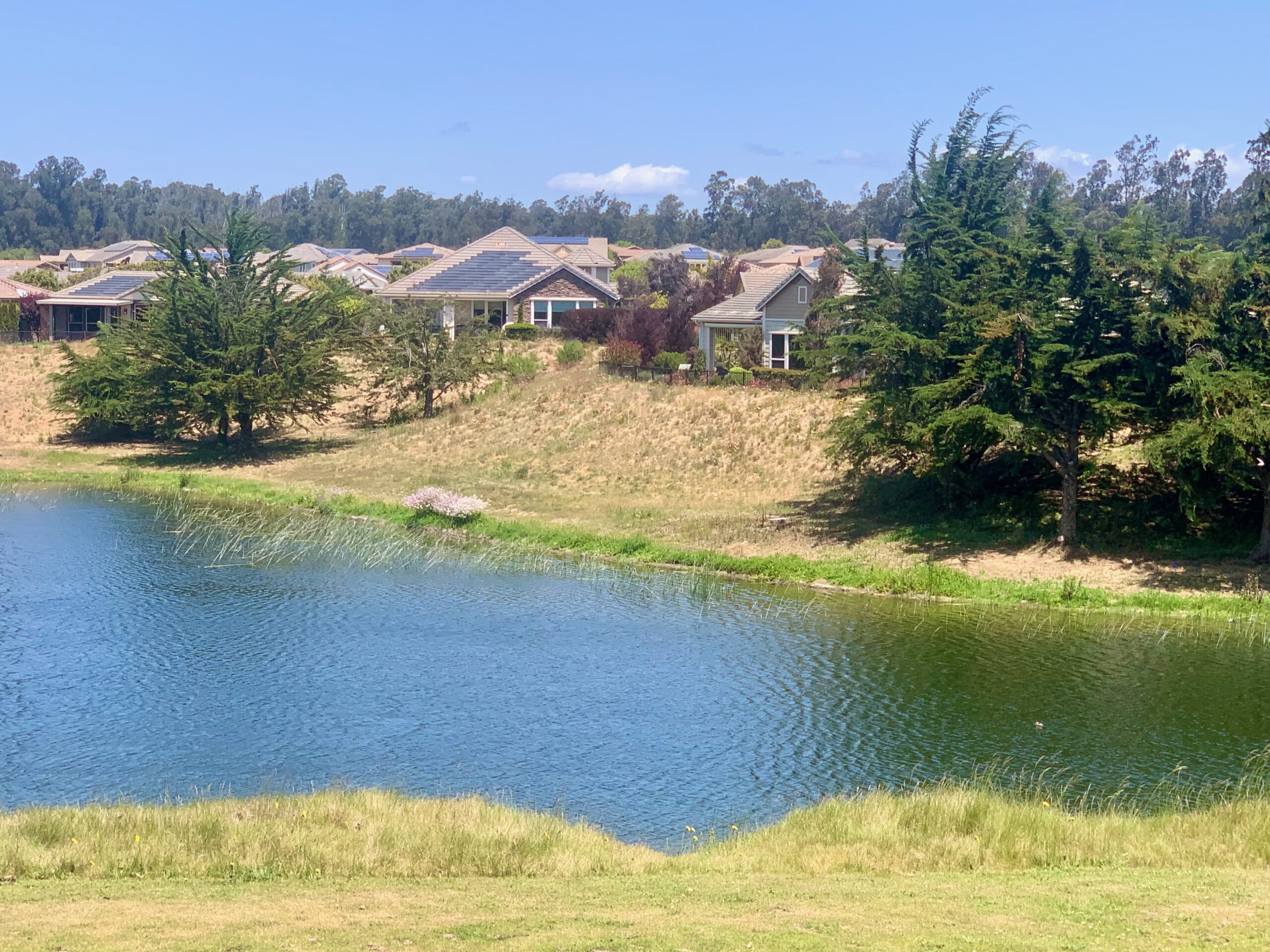
The suspicion that Trilogy would be attractive to retirees was hardened by the presence of a primary care facility and what was styled as a Dignity Health Lab. A woman in a bookkeeping office beside them (advice on doing one’s tax returns?) said the whole project began about 10 years ago and was still being added to in phases. Indeed, signs mentioned reserving units in a proposed new village centre.
Woody Guthrie’s song was all about a 1948 plane crash in which 28 migrant farm workers being deported to Mexico died — their bodies “scattered like dry leaves” as he put it, asking “is this the best way we can grow our big orchards? Is this the best way we can grow out good fruit?” I like to think that the Mexicans working the fields of southern California today are treated very significantly better than their predecessors were, nearly 80 years ago. The Mexican influence is omnipresent: in restaurants, shops and hotels, almost all staff appear to be Mexican in origin and, insofar as can be gleaned from casual conversations, they seem to be happy to have the opportunity to work and earn money.
I slept for the night in Pismo Beach where fellow campers included Pat and Reese Banta. Pat was stunt double for Harrison Ford and Jim Carey, as well as for Roger Moore in several of his James Bond films too. Reese was what is known as a precision driver for films too. I’m not sure who had more fun but they were both into biking! You really can’t escape the movies here . . .
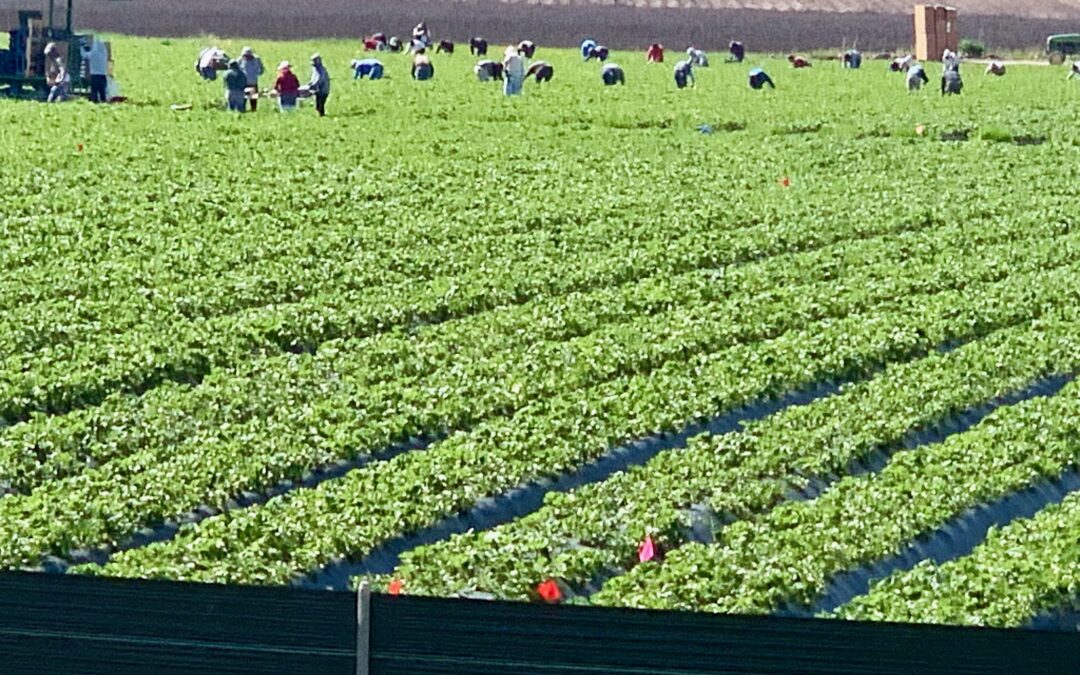
Peter: You’re progressing at some rate of knots. I’ll be down Oregon / Idaho way but early July and I feel you’ll be way past that by that time. So let me know your intiniary when you hit Canada (when / where) and I’ll see if I can scoose that way with my fellow riding buddies in tow. Always worth considering riding from Calgary (my home) to Jasper – a treasure. And it’ll bring you Dawson Creek which is KM-0 for the Trans Alaskan Highway. Also just sent a note to Geoff Hill – I have read all his books – he’s a literal artiste.
Sean, where did you send that note to? I can’t seem to find it. Email is [email protected] if that’s easiest. Peter, sorry to hijack this post for correspondence 🙂 Another fine piece, by the way!
Hiya! Am still in northern California but hope to be in Seattle in a day or three. After Portland, I’ll ponder the Canada route but right now, I am minded to go via Dawson City and then left (ie west!) to Fairbanks and the Dalton to Deadhorse… Let’s stay in touch! Best — Peter